University of Waterloo students nailed down tents outside of the Graduate House on campus May 13, 2024, joining a global mobilization where students set pro-Palestinian encampments on university grounds.
The encampment was erected by Occupy UW, a student-run group specifically created for this movement. The organization is not a part of the Waterloo Undergraduate Student Association like other clubs.
Nicholas Joseph, a fourth-year mathematics student part of the UW Voices for Palestine club and the media liaison for Occupy UW, said this was a response to a call to action set by Palestinian journalist Bisan Owda.
“Our university is directly complicit,” Joseph said. “We’re here because we want the university to disclose, divest and boycott—and that’s what we’re being steadfast in.”
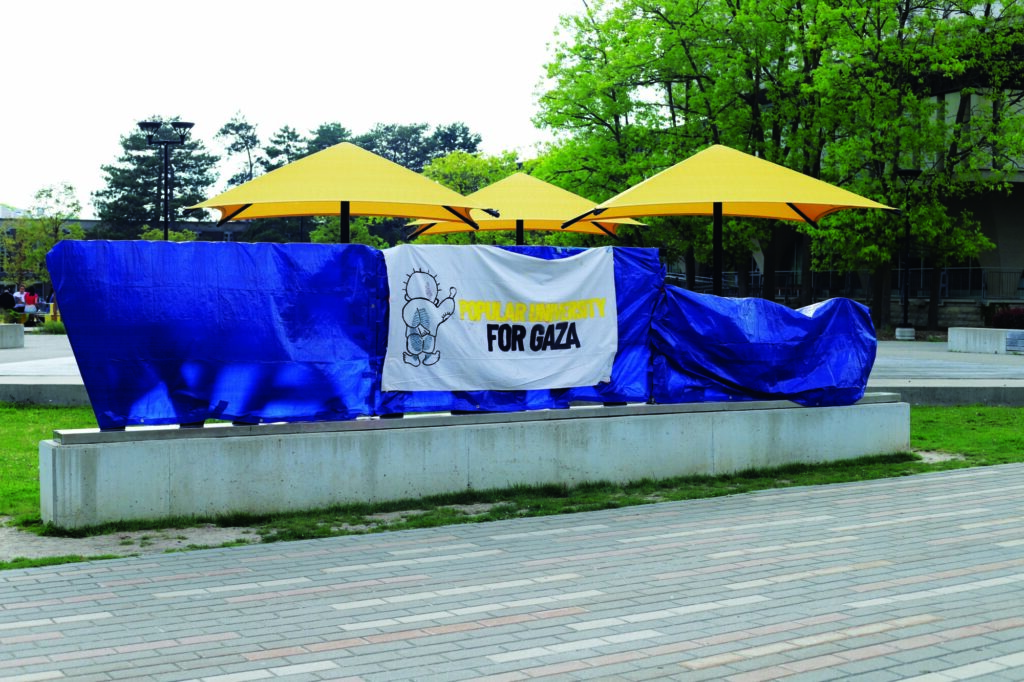
Joseph said the group will not leave the encampment until their demands are met. These ask the university to release a full list of their investments to students and to academically, culturally and financially boycott companies on the Boycott, Divestment and Sanctions (BDS) list, Israeli contractors, weapons manufacturers and institutions. Students held rallies, sit-ins, senate meetings, vigils—Joseph said he even met with UW President Vivek Goel face-to-face to discuss an agreement with the university.
“The students are tired of it. We’re tired of the admin not listening to our demands,” Joseph said. “We’ve done literally everything we can as students.”
The university published a statement regarding their approach to the encampment on May 17, written by Goel. The statement said UW has a commitment to supporting the right to speak and assemble freely on campus, but this right is not absolute and any discriminatory behaviour, hate speech or interference with the study or work environment of others will not be tolerated.
“I appreciate that the protestors have to date remained peaceful and courteous with other members of the community,” the statement read.
“However, we have heard that the nature of some of the signage surrounding the encampment has caused many community members to feel targeted, and that their own rights are being infringed,” it said.
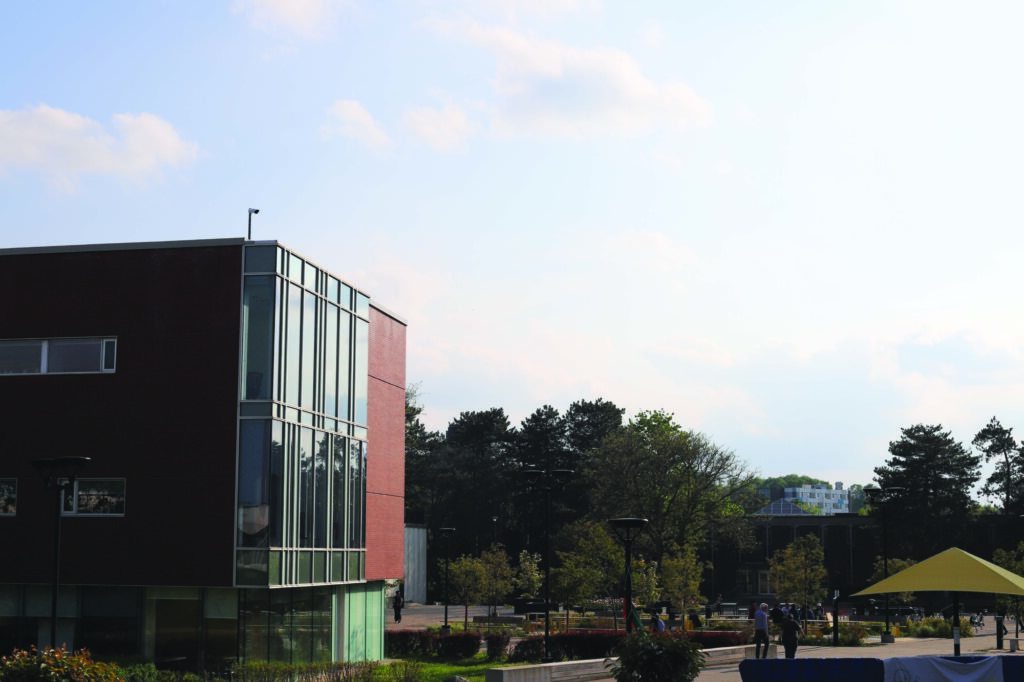
UW sent out a community-wide email on May 21 written by James Rush, the vice-president of academic and provost, and Jacinda Reitsma, the vice-president of administration and finance. The email said the university has informed campers they must end the encampment immediately, as it violates Ontario’s Trespass to Property Act.
“Representatives from the University have met in person with members of the encampment every day since Monday, May 13,” the email stated. “The University has used those engagements to request access to the encampment to conduct a safety inspection which members of the encampment have so far denied.”
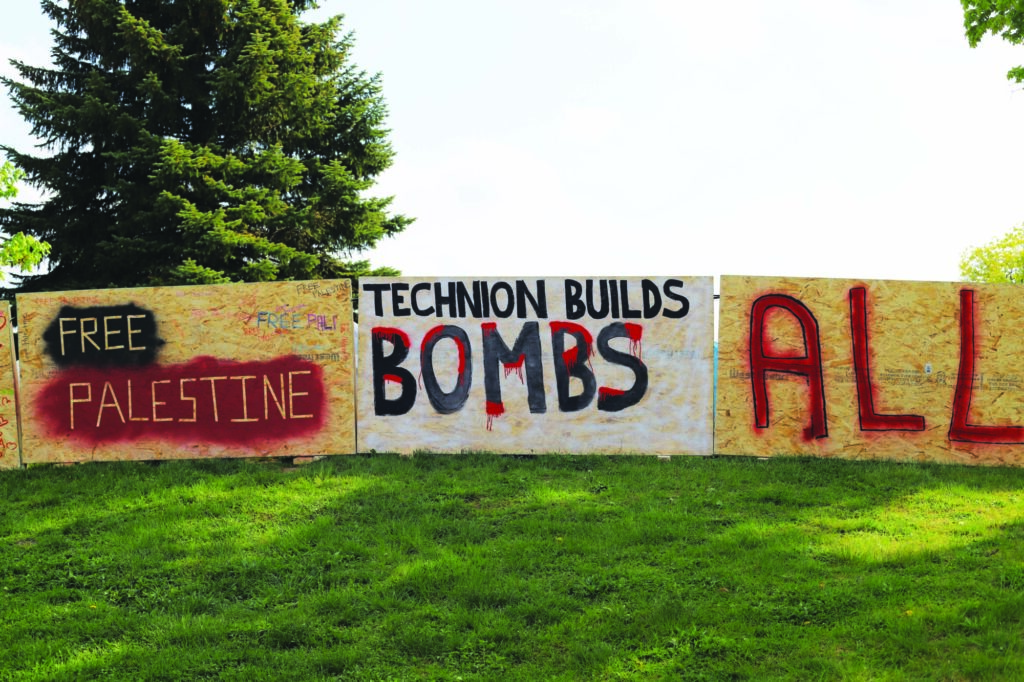
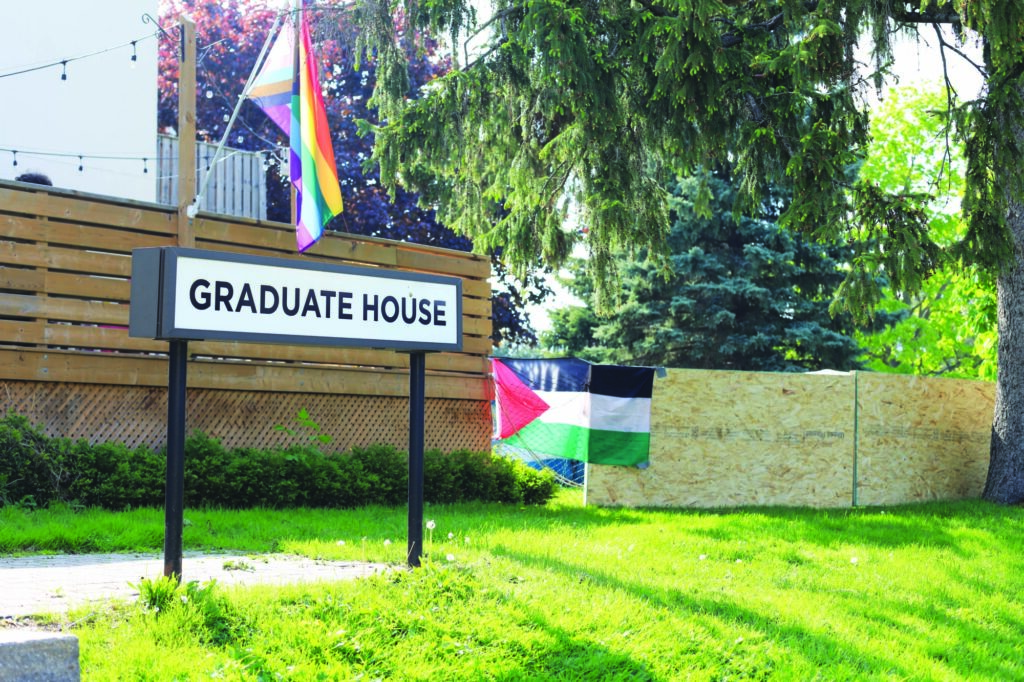
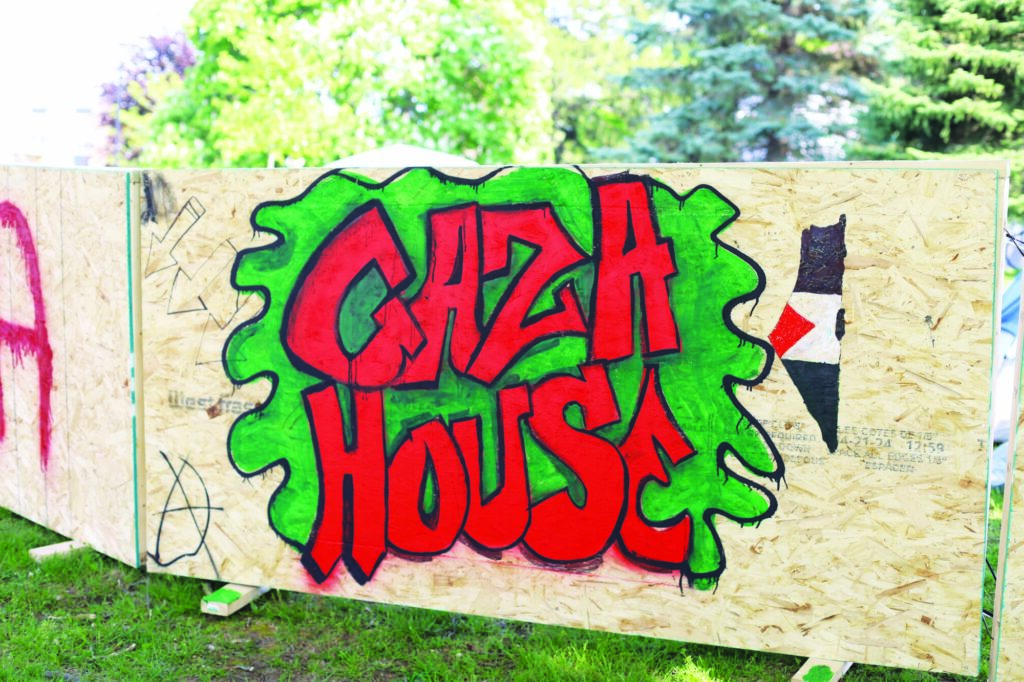
Joseph said representatives did meet with students at the encampment, but they did not engage in open dialogue. Instead, he said they left without addressing any demands when the safety tour was denied, as it would specifically target marginalized groups. Just on May 29, the university formally met with students and discussed the demands for an hour.
The email also said they are aware of reports of aggressive behaviour and racist and homophobic remarks made towards those at the encampment, which is “unacceptable.”
“Here, we have a zero-tolerance policy for any sort of hate speech,” Joseph said, adding that most of the hate speech that arose after the encampment started is directed to campers. “We don’t respond to aggressors.”
Since Oct. 7, 2023 Hamas attack that killed at least 1,139 Israeli civilians, at least 36,096 Palestinian civilians were killed in retaliation. This includes at least 15,000 children and more than 10,000 people labelled as missing, according to the Palestinian Ministry of Health, Palestine Red Crescent Society and Israeli army.
Rabbi Moshe Goldman is the on-campus Jewish chaplain for both UW and Wilfrid Laurier University (WLU) at the Rohr Chabad Centre for Jewish Life.
“It doesn’t cost me my loyalty to my people to say: I don’t want anybody to suffer and I’m sad that people are suffering, caught in the cross-fire of a conflict they want nothing to do with,” Goldman said.
“There’s lots of people who want nothing to do with the war and they can’t even wave a white flag,” he said.
Other Canadian universities where students held encampments include McGill University, University of British Columbia, University of Toronto and University of Alberta. Ontario Tech University is the first in the country to come to an agreement with students at the encampment.
Goldman said his initial concern with the UW encampment was if it would become destructive or stop people from getting to work or class, like at Columbia University in New York, U.S.A.
He said if protestors want to boycott Israel, they should just be consistent and avoid an extensive list of Israeli products, technology and medicine. He said they should also be consistent in critiquing other countries’ democratic issues.
Joseph said many people sent messages to the UW Voices for Palestine Instagram account asking for a UW encampment for a while now.
“I don’t think this was really just our decision as UW students,” he said. “It was our decision based on the decisions of many other people around the world.”
Joseph said the organizers bought a lot of the encampment equipment out of their own pockets, but students, faculty and community members have been supportive. He said students take pictures of the encampment and post them on social media with supportive messages, while people in the community made numerous donations.
Some professors volunteered to be legal observers and others brought their classes to the encampment. Occupy UW also hosts different educational activities for the community every day, like teach-ins.
But not everyone is responding positively to the encampment.
“Of course, there are always hecklers,” Joseph said.
Within the first few days of the encampment’s start, he said some people had already called protestors “terrorists” and “yelled slurs” at them.
“We’re fighting for people’s liberation,” Joseph said. “And a lot of our campers here have lost 50-plus family members in the last seven months—no sympathy shown from these kinds of people who go out and do that.”
Goldman said students don’t always ask him for his advice or permission before reacting.
“Someone who’s going around barking at people in the encampment is not acting wisely,” Goldman said. “There are outlets for the pain that don’t involve causing pain to other people. You have to channel your pain into something constructive.”
The rabbi said both peoples have memories and histories of persecution, war and loss. He said his grandfather was the only survivor of the Holocaust from their family.
“Remember that we’re only three generations from the Holocaust,” he said. “It’s very easy to have those feelings and those memories reawakened.”
Goldman said he is open to having an honest conversation about Israel-Palestine that takes the factual, political and religious history of the land into account. He said these conversations are not any easier for his own community.
“I’ve tried to talk about it sincerely with people. Sometimes I have a good conversation and sometimes people end the conversation with an ‘F-you,’” he said.
“There are people who have a narrative and they don’t like the disturbing facts that Israel has made mistakes. They don’t like to hear that.”
Joseph said a lot of people at the encampment are Jewish, some born in Israel, who overcame the country’s propaganda.
“I try to tell people that you’re not going to lose your standing in a position just because you acknowledge that somebody else is suffering,” Goldman said. “You don’t have to make fun of their suffering. You don’t have to celebrate their suffering…that says a lot about you more than the other person.”
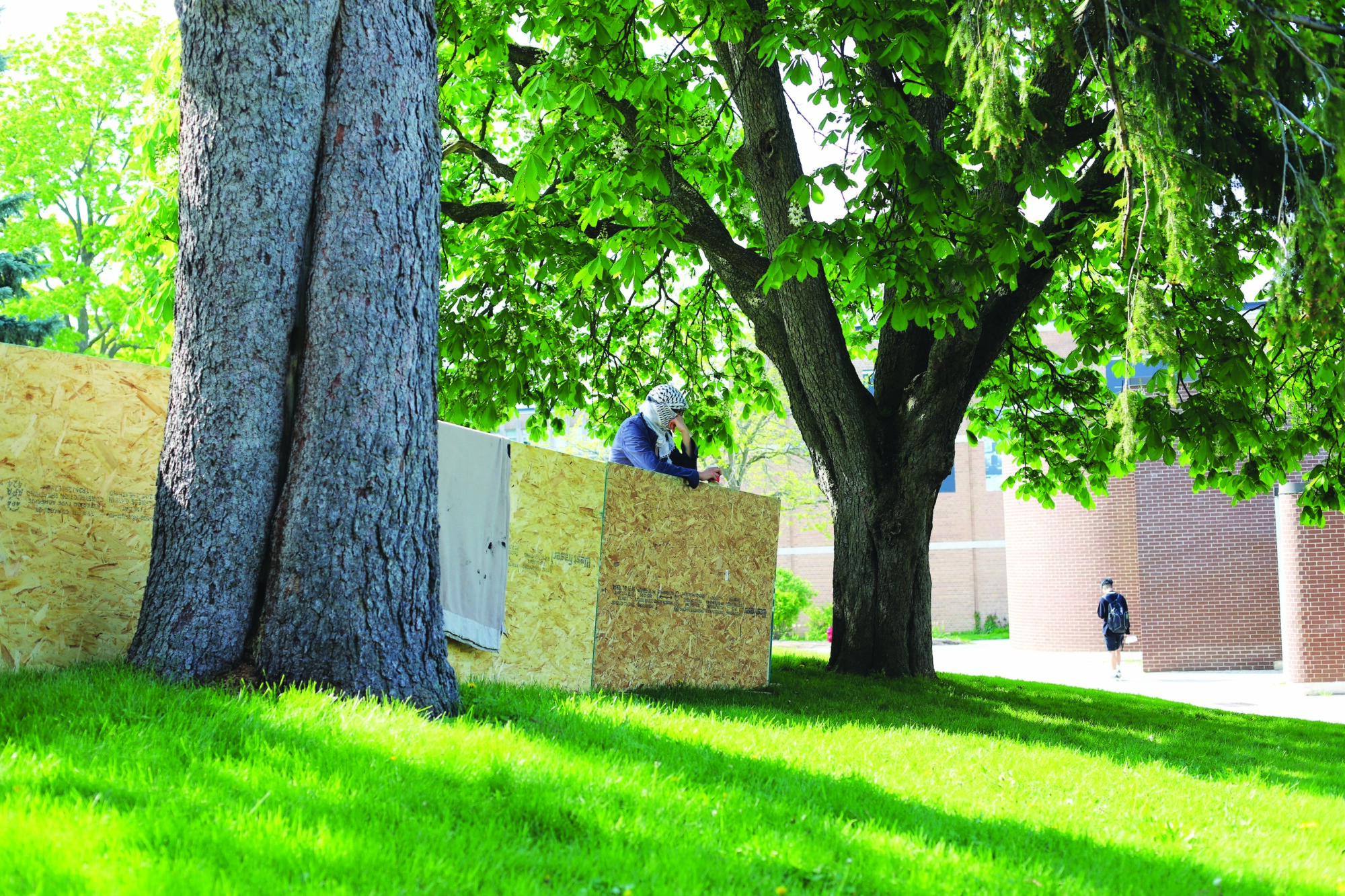



Leave a Reply